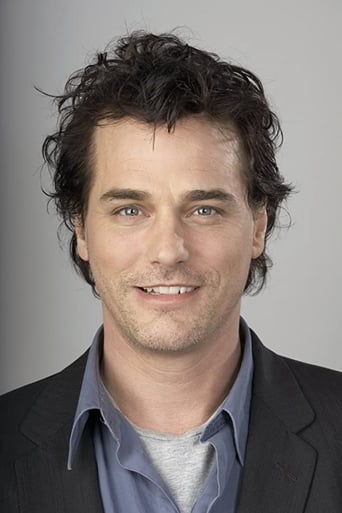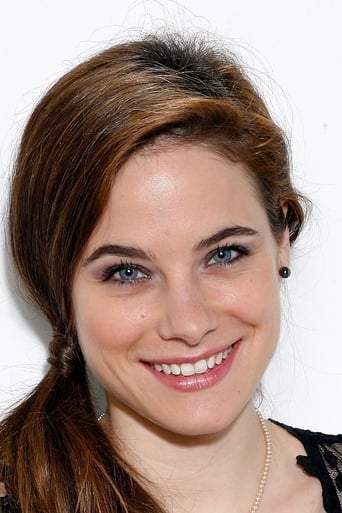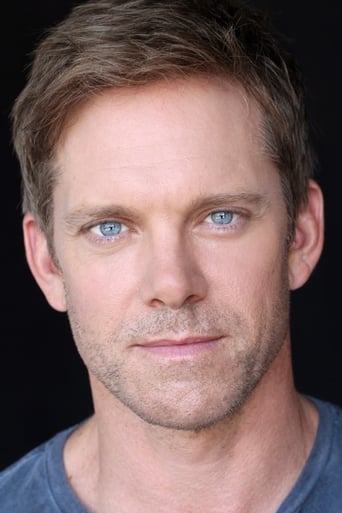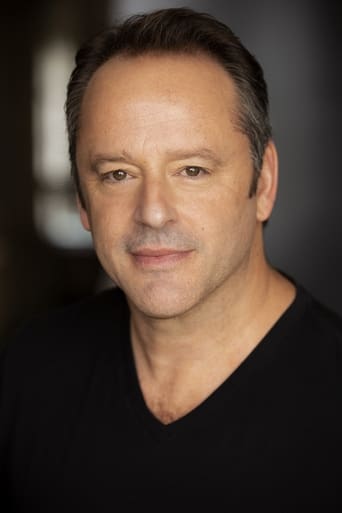Hellen
I like the storyline of this show,it attract me so much
Dorathen
Better Late Then Never
Sabah Hensley
This is a dark and sometimes deeply uncomfortable drama
Payno
I think this is a new genre that they're all sort of working their way through it and haven't got all the kinks worked out yet but it's a genre that works for me.
peterewilliams
This is a load of pretentious overblown rubbish with a ridiculous and totally absurd plot. The characters are caricatures, the direction is leaden. As others have commented- the battle scene at the end is well done - unfortunately you have to put up with the rest - wasting 90 minutes of your life
cyberdew41
At 20 million dollars, PASSCHENDAELE was the most expensive Canadian movie ever produced. And I think it's fair to say that every dollar of that budget shows on the screen. From the ultra-realistic battle scenes at Ypres and Passchendaele, to the portrayal of Calgary as a small prairie town at the turn of the 20th century, it is faithful to the visuals of what it must have been like to live at that time. PASSCHENDAELE is a throwback to the kind of war movies made by John Wayne, albeit with a hero in the throes of neurasthenia (PTSD) for having needlessly killed a young German soldier in a particularly cruel fashion. It wavers between glorifying the soldiers who fight in war, while criticizing war itself, especially the old men who stay safe at the home front and shame young men into joining the army.This movie is amazing in that it is a war epic quite literally made by one man, Paul Gross. Gross, wrote, solicited funding, produced, directed, starred, and even wrote the song "After the War" for this movie. I'm a fan of war movies, and it was this fact that led me to first watch PASSCHENDAELE. I must say, that for a one-man war film, it is astounding. I really enjoyed it. Other reviewers have commented on anachronisms in the speech of the characters. Actually, the slang is current to the WWI period, even though it may sound surprisingly modern to our ears. For example, at one point Sgt. Dunne says the line, "I can lose the uniform." In context this means, "I don't need to wear my uniform to the dance." At first this sounded anachronistic to me. Then I did some research. There are parts of America and Canada that were heavily influenced by non standard English... and I'm happy to say "I can lose the..." would have been around during the WWI era. (It was around in twelfth century Scot's Gaelic, in fact, which is presumably how it entered the English language.) Another criticism is that of the "plastic love story". I found it as believable as that between Rose and Jack in TITANIC, and more so. The love story is between the character played by Paul Gross, Sgt. Michael Dunne, and his nurse, Sarah Mann, played by the wonderful Caroline Dhavernas. The cast is rounded out by wonderful Canadian character actors, many of whom will be recognizable to fans of The Murdoch Mysteries, due SOUTH, Slings & Arrows, and others.Michael and Sarah have a strangely unrequited love; hers being dependent on him keeping her brother safe in the war. I wanted the characters to have more of a love story while the movie spent time on the home front in Canada. In my opinion, it would have strengthened the power of the ending.Yet, this is a very powerful piece. I would caution families against showing it to young children, as the battle violence is quite realistic. Sexual scenes are relatively tame and brief, for this day and age, and more is left to the viewers' imagination than to the screen. (refer to the Parents'Guide for specifics.) Quite wisely too, I think, PASSCHENDAELE was given an "R" rating -- I believe because of the war violence. I think it would be OK to show to teens with parental guidance, especially if they are studying WWI in school. Like its spiritual predecessor, ALL QUIET ON THE WESTERN FRONT, the violence is not gratuitous: it shows the utter brutality and sheer waste that war can be. Nevertheless, the visuals are brutal and disturbing. Something that parents would want to talk to their kids about.PASSCHENDAELE highlights the tremendous contribution Canada made to WWI. The sheer numbers of men killed were staggering. It glorifies the bravery of the individual soldier and of the platoons, while showing the futility of the war. It has a place in the war movie collection of any fan of the genre.
Tim Kidner
The DVD of this had been staring at me every time I ventured into my local HMV branch, vying for my '2 for £10' cash. It looked promising, until it was shown, just now on BBC1.Radio Times, rather shockingly awarded this Canadian WWI movie a cursory one star. Their renowned and respected critic David Parkinson had derided it - How - and what - could make it so utterly bad?On a surface level, it's not a bad looking film, so the deficiencies are more than skin deep and they seep up and slowly overwhelm its audience. The bland, uninspiring characters, who we just can't warm to or rally around, the boring romantic tangents that help waste up to an hour of its lengthy near two hour runtime.Those who might celebrate a war film that's not all about guns and blowing people up, still might find that the entire run seems set on half-speed. The Canadian mountainous landscapes help offset an air of grimy doom, that binds the whole project like constricting barbed wire on the Front. Many reviewers have carped on about the menial dialogue; we don't expect Shakespearian dialogue amongst frightened squaddies on battlefront, but a believable one would have helped.It was the religious symbolism in the final frames that really got David Parkinson's goat - played out totally for melodramatic effect. I'm not religious, so it did not offend me - I cannot begin to imagine the feelings that those that are, might have.In a way, I'm glad that I watched Passchendale and I did so for free and that I won't have to see it again. It's a name of a place that is steeped in History and as fewer WWI veterans remain with us, it's even more important that their memories - and that they fought so bravely for the freedom that we enjoy - and take for granted now, are kept alive. Unfortunately, this film doesn't do that, but fortunately, because it is pretty poor, few people will ever get to see it.
guyincognito1
This is a film which tries very hard to look at the British's comrades from the Commonwealth, although there is not nearly enough light shed on the living conditions in the trenches. What films such as this tend to forget is that most of WW1 was spent in freezing mud, rather than heroic stands against German machine guns. And let's not forget that the British had machine guns too. Most of the cavalry, having failed on horseback, were re-trained as machine-gunners. But I digress.Don't get me wrong, this film had some genuinely nice moments. But a love scene practically on the battlefield? I'm sorry Mr. Gross, that's going too far. What was even more irritating than that was the fact that said scene was in-dispersed with shots of the war raging behind. Come on, don't mix your themes please, it makes the viewer think that you don't know what you're doing. This, to some extent, is not true. The camera-work, in particular, is actually very impressive, and the battle scenes are very well executed. Caroline Dhavernas is actually pretty good, but this does not compensate for the negatives.Namely, the fact that the story-line is so clichéd. A man sent home from the war who is perfectly fit and capable seems unlikely (at the least) from the start. But it just gets worse. A blundering and horrible mustachioed fat recruiting officer who also just happens to be British? Let's see if we can find any more blatant stereotypes? German soldiers more often than not depicted as pathetic teenagers? Of course, why not? Oh, yes, that's right, it's because it is absolute tripe. A weedy boy who is so patriotic he fights for his country anyway, like we haven't seen that one a thousand times before. Oh, and of course, an absolutely perfect Hero, who can make anybody fall in love with him, and still spout badly written rhetoric about his homeland. And this is another gripe I have with the film. The dialogue is an integral part of any film, but, in this department, Gross has failed. It is full to the brim with clichés, and staggers around making everyone sound like they should be - well, I don't know, but it is really badly written. So there's some really nice work on this film, but for the big screen, it's just not really up to scratch.





